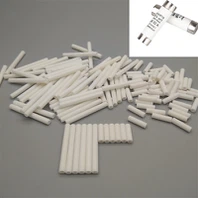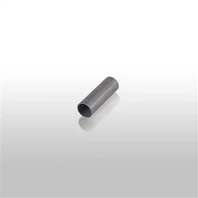Silicon nitride (Si3N4) is a high-performance ceramic material known for its exceptional mechanical, thermal, and chemical properties. One crucial property that defines its utility in various applications is its density. Density is a fundamental physical property that quantifies the mass of a substance per unit volume.
The density of silicon nitride typically ranges from 3.2 to 3.3 g/cm3, which makes it among the lightweight ceramics while still maintaining excellent strength and toughness. The low density of silicon nitride contributes to its high specific strength, making it suitable for applications where weight is a critical factor, such as aerospace components and automotive components.
Silicon nitride has special properties because of the way its crystal structure is made up of silicon (Si) and nitrogen (N) atoms that are bonded together to make a three-dimensional network. This network structure imparts remarkable hardness, wear resistance, and thermal stability to silicon nitride. As a result, it finds applications in diverse industries, including electronics, cutting tools, bearings, and biomedical devices.
Applications of Silicon Nitride
In electronic applications, silicon nitride is utilized for its insulating properties and compatibility with semiconductor manufacturing processes. It serves as an excellent material for encapsulating electronic components, providing protection against harsh environmental conditions and maintaining electrical insulation.
In the realm of cutting tools and bearings, silicon nitride's high hardness and wear resistance make it an ideal candidate for demanding applications. It can withstand extreme conditions, reducing the need for frequent replacements and enhancing the overall efficiency and longevity of the tools.
The biomedical field also benefits from silicon nitride's biocompatibility and resistance to corrosion, making it suitable for applications such as dental implants and joint replacements.
In summary, the density of silicon nitride, coupled with its exceptional mechanical and thermal properties, makes it a versatile material with a wide range of applications in various industries, contributing to advancements in technology and materials science.




